Dear supporters,
Even if only one issue is covered in the news these days, we want to keep you up to date with news from our projects.
Of the estimated more than EUR 1,000 billion needed annually to achieve the Paris climate targets, only about EUR 300 billion have been spent on renewable energy in recent years. We all have to close the gap that remains together, worldwide. atmosfair’s main source of income, carbon offsetting of air travel, has come to a virtual standstill. But our projects continue to run and depend on financing, even if many local partners are now making slower progress as a result of the lockdown. That is why we have now focused our website more on the transition to a low carbon, environmentally sound energy supply because it is necessary, with or without air travel.
The construction of a cookstove factory in northern Nigeria, which has been in the pipeline for a long time, is slowly taking shape To this end, we have founded a Nigerian subsidiary and are now allowed to build the world’s most energy-efficient household stove locally under licence, with local staff and many suppliers and partner companies from within the country. We are currently already “rehearsing” the individual production steps with machines in our own workshop in Berlin. We are also in the process of renting a factory building in Rwanda to manufacture many parts for wood-saving cookstoves on our own.
In southern Madagascar we have taken the initial steps to supply electricity to the first 10 villages with solar power. The electricity will be available around the clock and will be strong enough to create local workshops and jobs.
New film: you will find a new documentary video about a large refugee camp in northern Iraq that we have equipped with photovoltaics with financial support of the state of Baden Württemberg on www.atmosfair.de. They are evocative images full of hope, showing what can happen even in seemingly desperate situations if we trust one another and work together.
To conclude once again, the coronavirus: atmosfair employees are helping Die Tafel in Kreuzberg to distribute food by bicycle to people who can no longer get to the distribution points. FlixBus is helping us with electric cargo bikes, thank you!
Best regards from Berlin Kreuzberg,
Dietrich Brockhagen
CEO of atmosfair
P.S. Please address questions, suggestions and criticism to: info@atmosfair.de
Do you want to stop receiving our newsletter? Click the following link to unsubscribe: Unsubscribe from the newsletter.
Producing instead of importing: atmosfair sets up local cookstove production facility in Nigeria and Rwanda
Lagos, Nigeria, Kigali, Rwanda and Berlin, Germany in May 2020: atmosfair sets up local cookstove production facilities in Nigeria and Rwanda. In 2020, we plan to start production of the first of our own cookstoves in Kano in northern Nigeria. In Rwanda, too, the Save80 will be manufactured entirely locally, in Kigali in the future.
In Nigeria, we reached an important milestone on 19 February 2020: we founded our own subsidiary. atmosfair Climate & Sustainability Limited will be the owner of the cookstove factory, which we are currently working hard to establish. To support these efforts, we have hired a team of four project managers on site. They have already identified potential buildings for production and are currently looking for partners for the procurement of raw materials, especially high-quality steel, for the cookstoves and for their distribution. We will create more jobs in production. We plan to start with the production of about 10,000 to 50,000 cookstoves per year. But once production and sales have been successfully launched, we intend to achieve this many times over in the long term. To be able to sell this many every year, we have to break new ground: we will no longer sell the cookstoves directly to users through a few of our own partners as before, but through wholesalers and a network of intermediaries from Kano throughout Nigeria. At the same time, however, we must be able to track the cookstoves in order to record the emission reductions achieved. This is why we are currently developing a mobile app that will allow users to register their cookstoves themselves and analyse possible tracking technologies.
The great Green Wall: stopping forest loss – not possible without good cookstoves for households
During our last project visit on site, Dr Bukar Hassan, head of the National Agency for The Great Green Wall, told us that he urgently needs many millions of economical cookstoves for families in rural northern Nigeria. The main source of energy for these stoves is wood from the forests, which are constantly being cut down. He, however, is trying to generate new forests, as a green wall against the Niger desert, which is advancing into Nigeria from the north. Without a widespread transition from open fire to economical cookstoves, he told us at a meeting with his team at the Abuja office, he won’t stand a chance.
New production hall in Kigali
In Rwanda, we have long had competent local partners in the form of the NGOs Safer Rwanda and Rwanda Women’s Network, that will now assume responsibility for the construction of the cookstove factory and the production of the stoves. The coronavirus pandemic has delayed the search for a suitable production hall or area for its construction. However, our partners have already increased their storage capacities and are now preparing everything to ensure that production can be set up all the more quickly once the initial restrictions are relaxed.
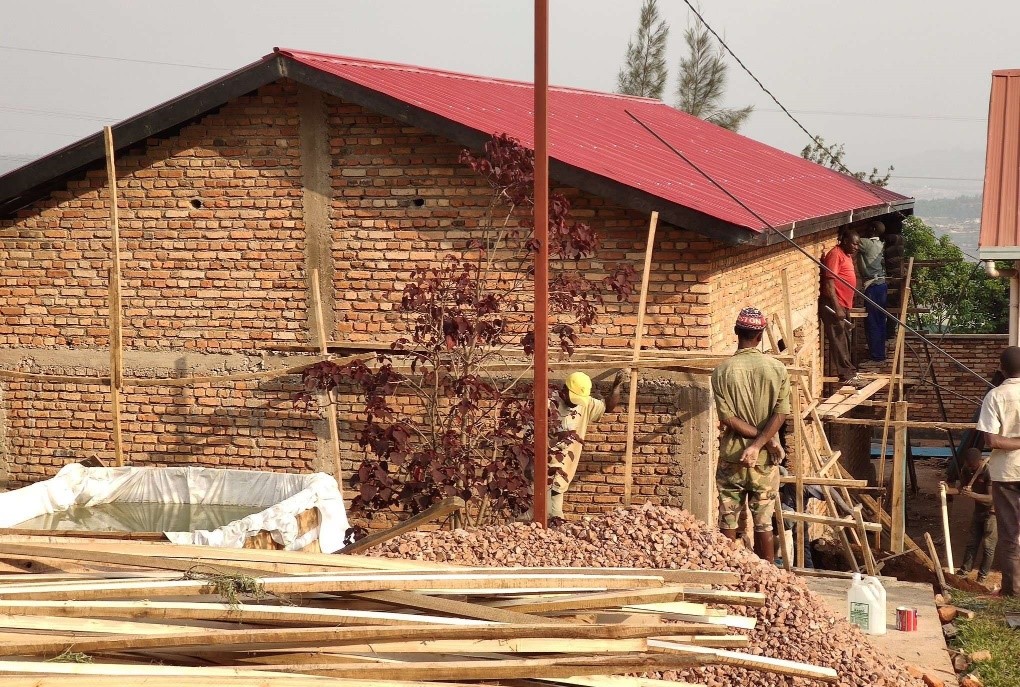
Up to now we have been sending out ready-made Save80 kits from Germany, which our local partners only have to assemble. In the future the plan is for them to be responsible for punching and bending the steel plates and to purchase them on their own. We have set up a workshop with the necessary machines in Berlin-Pankow, where we are now testing the pneumatic punches and other machines ourselves and optimising the production line. We will then set up the production lines on site in Nigeria and Rwanda and train our partners in how to manufacture the cookstoves.
By relocating production to Nigeria and Rwanda, we aim to lay the foundation for our project partners on the ground to be able to produce the cookstoves in a few years with less and less funding from us. The goal is for production to be economically viable in the long term. We can then use our financial resources for the next project. This is how we achieve the greatest impact with your contributions to climate change mitigation.
In both Nigeria and Rwanda, people, especially in rural areas, use wood as their main source of energy. About 97 percent of Rwanda’s energy needs are met by wood. In Nigeria, in the north of the country where we are building our cookstove factory, up to 99 percent of families use wood for cooking. Rwanda and Nigeria therefore lost large parts of their forests at the end of the last century – Nigeria lost more than 50 percent in only five years between 2000 and 2005. Our cookstoves are therefore urgently needed to relieve the pressure on the remaining forests and to support the countries’ reforestation efforts. We are already looking forward to the moment when the first completely self-produced cookstove leaves the factory gate.
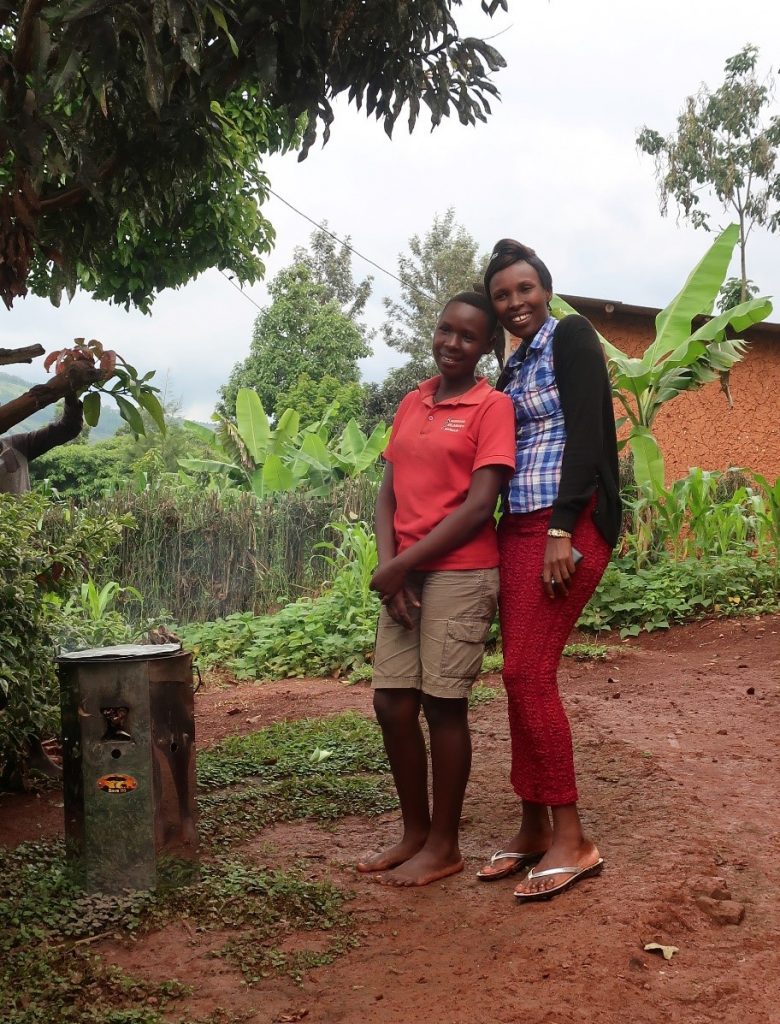
atmosfair supplies the first 10 villages in Madagascar with electricity
Tulear, Madagascar: atmosfair has started a new project for rural electrification in the southwest of Madagascar. Here we plan to equip the first 10 villages in Madagascar with their own small power grids (mini-grids) and photovoltaic systems before the end of 2020. These will be located next to the villages with about 5,000 inhabitants and will supply the entire village with electricity.
The first project developers we are working with, Anka Madagascar and autarsys Madagascar, were on site and presented the planned facilities to national and international stakeholders, including ministries, NGOs and energy suppliers. The local atmosfair employee Rija Rakotoson and representatives of the partner companies then visited the first ten villages, presented the plans in detail and interviewed the village communities. In the process, we learned about important factors and details that we will take into account in further planning.
Many villages have no electricity at all or generate it themselves with small diesel generators, falling far short of meeting their electricity needs. Together with our partners, we are building photovoltaic systems with electricity storage capacities and small distribution networks in the villages. The operators of the systems will be separate operating companies, in which atmosfair has a financial stake, but for which the locals are mainly responsible. This will give households and local businesses access to clean and affordable energy.
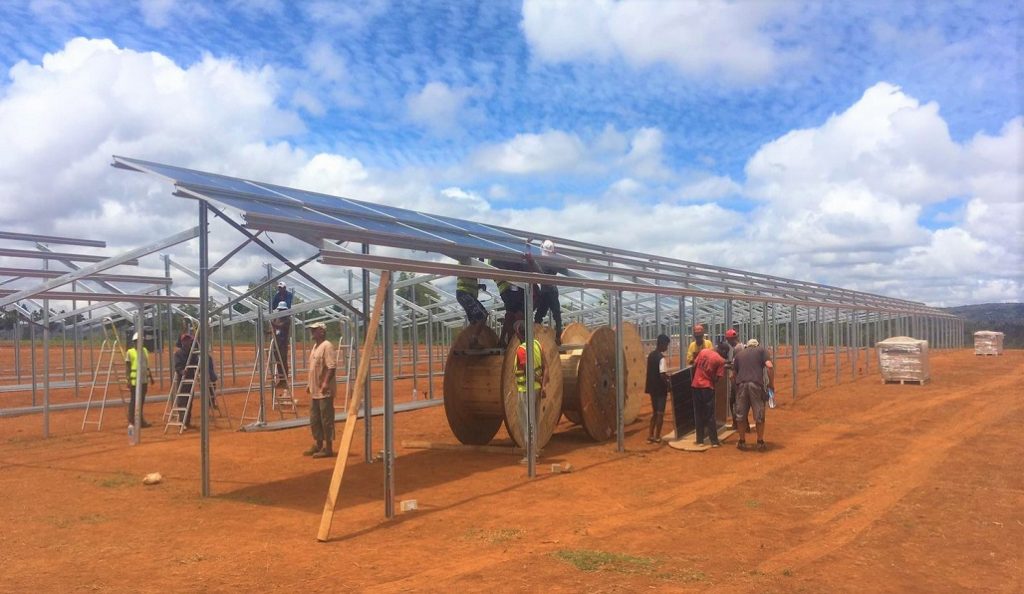
New approach: creating jobs with food and electricity from greenhouses
We are pursuing a new approach with our partner Sunfarming from Erkner in the German state of Brandenburg: we are building greenhouses with efficient drip irrigation, which have photovoltaic modules on their roofs. These areas can be used to grow food and to produce electricity. atmosfair expects that the villages will also benefit economically, as production facilities such as workshops and jobs will be created locally, while the high cost of diesel is eliminated. However, the risk remains high, as southern Madagascar is one of the poorest regions in the world and many villagers have never had access to or paid for electricity. To be able to operate the photovoltaic systems cost-effectively in the long run under these circumstances, atmosfair is supporting the village communities financially and with project planning and implementation with our engineers and technology partners during the construction and the critical first years of operation. The aim is that atmosfair will be able to withdraw completely from the projects later on.

Madagascar is the largest island nation in Africa and the fourth largest island in the world. At the equivalent of USD 400 per year, annual gross national income per capita is far below the average of other sub-Saharan African countries. Only about 17 percent of the population has access to electricity, in rural areas only one in ten inhabitants has access to electricity. There is therefore an urgent need to increase the energy supply, but funds are lacking in the country, as high subsidies for the country’s largest electricity supplier put pressure on the national budget. This is why Madagascar has started an electrification programme financed by the World Bank which allows project developers to make suggestions. However, initial experiences with the programme show that funding is a problem. To date, hardly any of the projects have been implemented. This is a gap that atmosfair now wants to help close.
In the next few years, atmosfair and its partners aim to supply electricity to more villages. The successful financing of initial projects from the national programme sends an important message in the energy market that can encourage foreign investors to make large-scale rural electrification in Madagascar possible.
Coronavirus crisis: atmosfair supports the Berliner Tafel e.V. - solar-powered cargo bikes - FlixBus
Berlin, April 2020
In cooperation with fLotte Berlin the Berliner Tafel e.V., atmosfair is supporting the environmentally friendly delivery of food to the needy during the coronavirus crisis. atmosfair is working together with the Martin Luther Church in Berlin-Kreuzberg to supply up to 50 households.
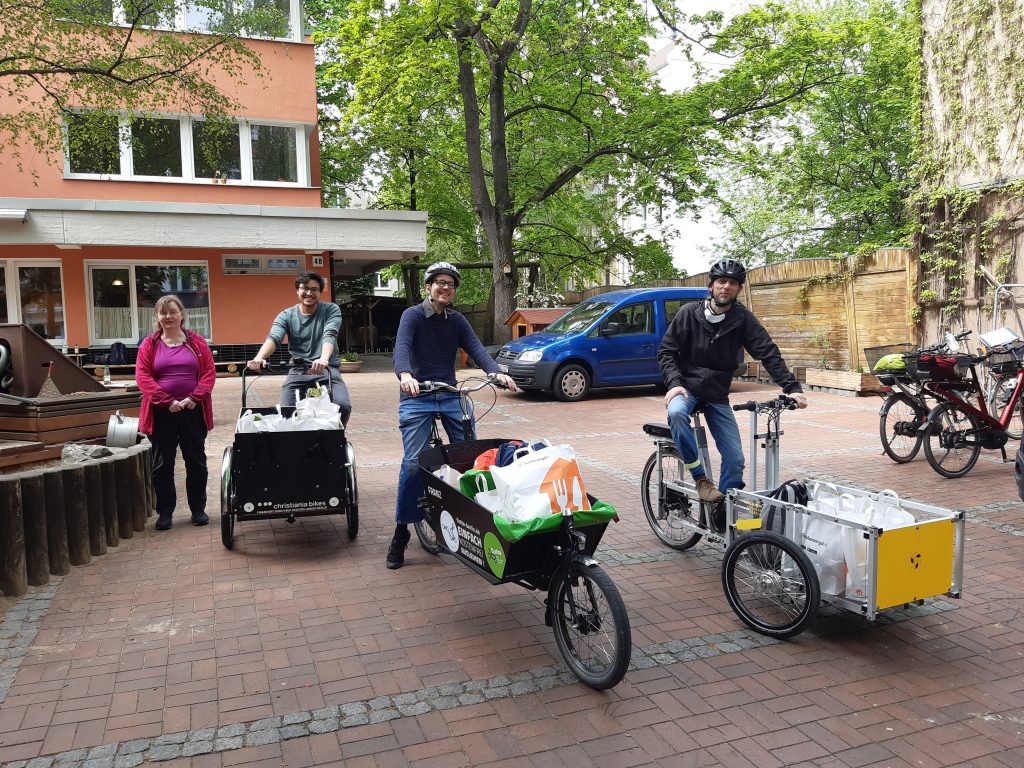
In Berlin, 42 of 45 food distribution points of the Berliner Tafel had to close down to protect the mostly older volunteers. Since 30 March 2020, telephone services have been set up in the distribution points to take requests for food. For delivery, however, the Berliner Tafel lacks helping hands and above all suitable vehicles. For the distribution points in Fuldastraße and Oranienstraße, atmosfair has been responsible for route planning and food delivery every Wednesday since 8 April 2020.
Support is expected to continue at least until the end of May, when the Tafel’s distribution points will be able to reopen.
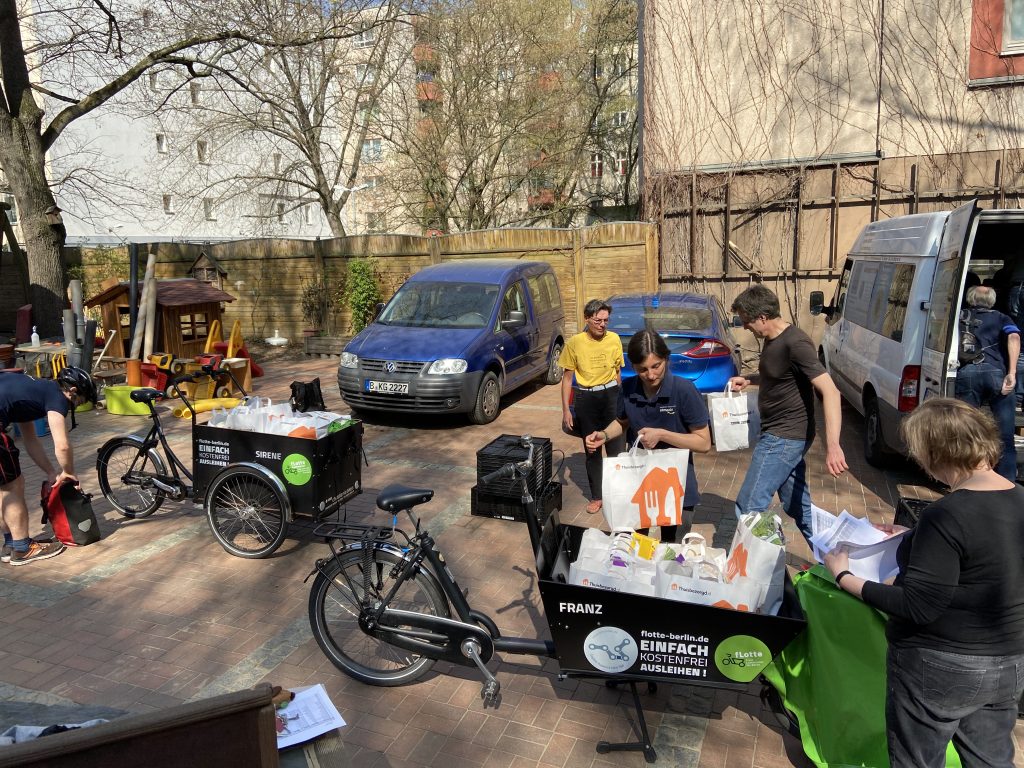
A very special thanks goes to fLotte Berlin the ADFC, which has provided atmosfair with 3 free cargo bikes for the charity campaign. The Berlin initiative for free cargo bikes is supporting various coronavirus relief initiatives with their environmentally friendly vans, which all Berliners can borrow for free.
In cooperation with FlixBus, atmosfair is working on a special thank you for the fLotte Berlin: a new cargo bike will be equipped with a solar module and made available to the fLotte. This means that the fLotte will have the first solar-powered cargo bike for Berlin. Unfortunately, there are no solar-powered cargo bikes on the market at the moment, which is why we are currently equipping the bikes ourselves. In a first step, we have determined which model is best suited for this purpose. Due to its modular design, the cargo trike from the manufacturer XYZ Cargo is the perfect choice. Fortunately, we were able to purchase it directly in Berlin and without long delivery times. Many thanks to “isicargo for urban mobility” for the advice and the special price benefiting the volunteer project!
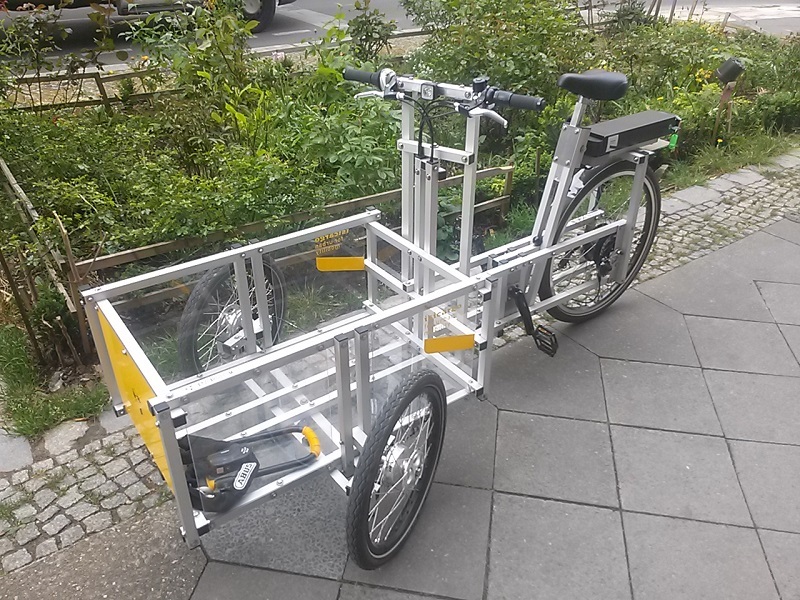
Together with FlixBus, we have also taken the initiative in Berlin as an opportunity to promote sustainable mobility in other cities as well, especially when it comes to volunteer work. We are currently talking to various institutions in Cologne and Munich that would like to use an electric cargo bike to deliver supplies to the needy.
Jobs with atmosfair
Our current job advertisements
Head of Business Development / / New Technologies and Consulting for Companies (m/f)
Project Manager Climate Action for Companies / New Technologies and Consulting (m/f)
Social Media Manager / Digital Marketing Specialist (m/w/d)
Application deadline: 23.05.2020. We look forward to receiving your application.
We are also happy to accept applications for federal volunteer service (Bundesfreiwilligendienst) and internships. More information at atmosfair.en/en/about_us/jobs.
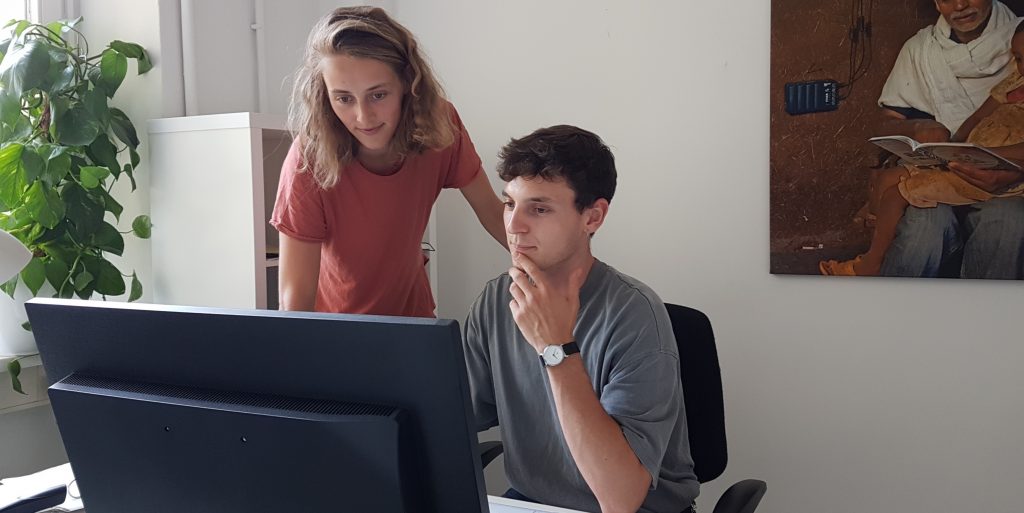


 Share
Share Tweet
Tweet